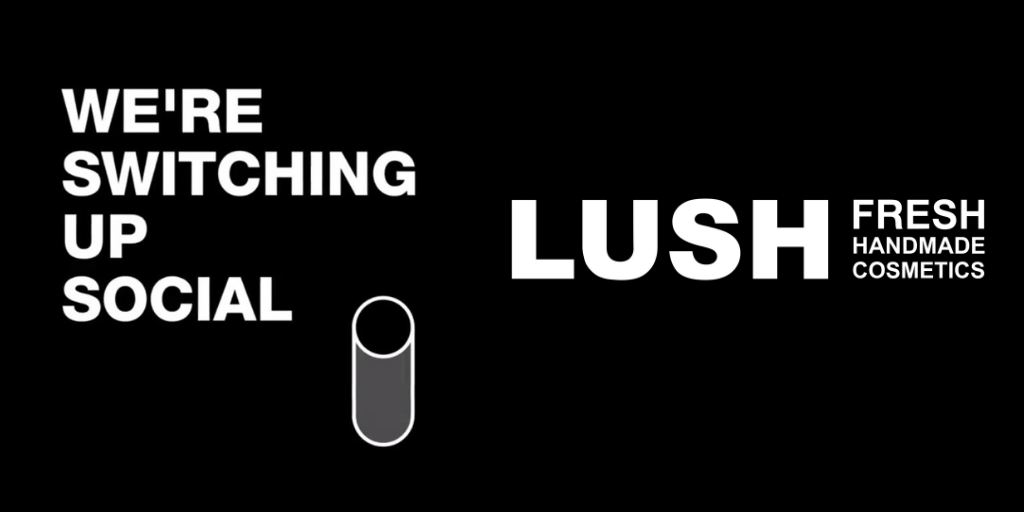
On April 10th of 2019, LUSH’s decision to remove
social media accounts had made it into the public’s eyes. In the recent article,
published by Marketing Land, the cosmetics company LUSH in the United Kingdom
was explaining its decision to shut down a few of their social media accounts.
The company stated that they believed, “social platforms were making it harder
to talk to customers.” In today’s society, social
media tends to lean towards a pay-for-advertising sort of trend. If the company
does not want to pay for “appearing on your newsfeed”, then their
advertisements will vaguely be seen. Almost every big-name company imaginable
has social media accounts and sites for extra reaching points. But since the
media sites have realized this, they are now charging for guaranteed viewings
of these advertisements.
In
2016, there was ninety-six percent of the beauty brand companies available on Instagram. Some patrons think that LUSH's marketing move is going to end in disaster, but the company has decided to take its chances. Along with the risk, most people
agree that LUSH will lose potential target customers. LUSH would prefer
to have a more personable relationship with their clients. LUSH is paving the
way through this new path and most companies will sit back and watch to see if
this will be a success or a failure to their brand.
This
new marketing style has created a divide in the thoughts that marketers believe how things
should be done. I believe this is a risky yet rewarding decision. It would be
risky due to the reduction of advertising to new target members and possibly
losing a few of the clients who have not been completely loyal to their company yet.
Other than the loss of a portion of their target market to the depths of
multiple social media platforms, I think this would actually help with their
business in other ways. They could spend the money that would be required on
social media websites on other campaign strategies such as TV advertisements or
promotions for their loyal clientele.
With
the new-found pathway LUSH is traveling on, it will be very interesting to
watch how the public will react in the short term and long term. According to
the article, the source stated that the general public follows the mindset of
“how other people are talking about their brand matters far more than how a
brand talks about themselves.” By breaking the norm that
practically every company is forming to, society has either judged the change
or watched to see the way the public feels on the company's marketing decision. The
mold created by the technology-driven society that we have today has become the
guideline to follow for the DOs and DON'Ts of marketing a brand.
Marketers
have realized that the “organic reach” of a company has become
increasingly difficult in recent years. “Organic reach is the number of people
who have seen your post through unpaid distribution.” While it is free to sign up for most social media accounts, companies must invest time to figure out the "right" algorithm to reach more consumers without paying for the ads on the internet. Before the boom of technology, people would notice more
advertisements in other places than on the screens of their electronic devices. If they leased the billboard
in the spot that has the most foot traffic, they would have gained better business than others with a billboard in a less-ideal location or without any billboards at all.
All
in all, the LUSH Cosmetics Company has pushed the boundary in their new
marketing decision and there are multiple pros and cons to view. It is
intriguing to see what the public will decide about their feelings on this
mold-breaking selection. With LUSH’s choice, we will see if there will be more
companies to follow in the future.
What do you think of LUSH's non-social-media marketing strategy? Shall others follow?
About
the Author
Rebecca
Hicks is completing her second year as a California Polytechnic University,
Pomona student in May of 2019. She is a Hospitality Management student with the
Hotel and Lodging Series emphasis. She has not limited herself to a specific
job description that she would prefer to work for her future just yet. She is
hoping to work for, but not limiting to, large hotel chains such as Marriott or the Walt Disney Company. She
is honored to be surrounded by the bright and talented faculty and students that this campus has offered. She is expected to graduate in May of
2021 with a bachelor’s degree in Hospitality Management.
Note: The picture was download from https://www.thedrum.com/news/2019/04/09/lush-abandons-social-media-its-getting-harder-talk-customers
Comments
Post a Comment